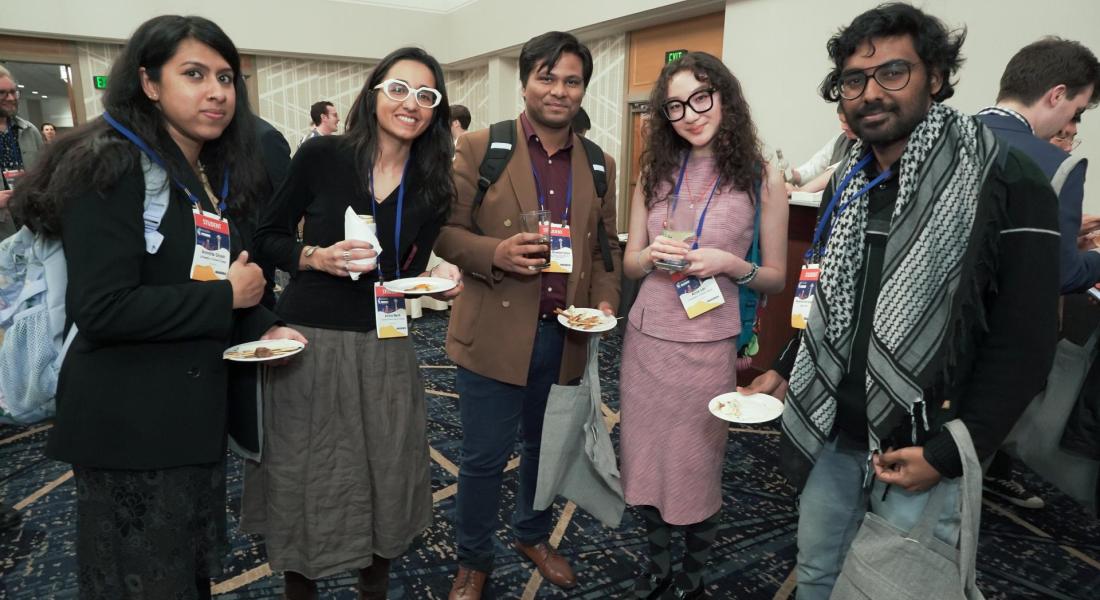
From March 14th to 16th, I had the privilege of attending the 2024 Association for Asian Studies (AAS) Annual Conference in Seattle, Washington. To better inform the reader, I am a political science major but was intent on approaching the conference with an open mind of exploring various fields of study and research methods. To quickly highlight some parts of my schedule, a few fascinating panels I went to were: Teaching Hong Kong History during a Complex Time in Hong Kong History; Colonial Borders: Ethnicity, Identity, and Agency in Buryat-Mongolian, Tibetan, and Hong Kong Communities; and our own Professor Koesel’s “Chinese” Stories Told Well: Aspects of PRC and Taiwan’s Internal and External Political Discourses. In between sessions, I walked around the exhibit hall on the 6th floor of the Seattle Convention Center showcasing numerous publishers and their most recent books, as well as watched the short film Forever 17 in which a queer relationship is unfolded against the backdrop of a future Hong Kong that has legalized same-sex marriage. Overall, the conference housed a good balance of more structured events paired with casual, social events to meet both early and experienced scholars.
My first day, I dropped by the graduate student reception and, while sipping my pineapple juice, engaged in a passionate conversation with a friend I made from the University of Illinois and a graduate student from India about the need for more papers and presentations on Palestine. Although Palestine’s case was a missing narrative, settler colonialism was covered in the context of a Chinese settler colonial project in Eastern Tibet (a session I attended), and many papers discussed decolonization across the Asian continent. Because of this, I was impressed and excited by the diverse inclusion of discussions, and felt inspired by the many young academics doing work in the realm of decolonial studies. As of now, and especially following the conference, this is research I want to conduct in the future because of the importance it holds for me and the communities I stand in solidarity with around the world. Professor Dáša Mortensen brought up a notable point when she stated that the process of settler colonialism includes dispossessing people of their land and manifests as a structure, rather than an event. A part of the same panel, Kwok Kwan Tsoi argued for the concept of “‘strategic coloniality’ to capture a distinctive colonial-emancipatory nexus in which multiple hegemonies propel the oppressed to strategically mobilize coloniality as a form of resistance” (Tsoi in “Strategic Coloniality”). I am interested in engaging further with Tsoi’s concept—whether I agree with this or not, and whether it can be applied to other regions besides Hong Kong.
Another reception I attended was the Hong Kong Studies one late Friday evening. I was able to meet with John Carroll who oversees the MA program for Hong Kong History at the University of Hong Kong (HKU), where I will be studying abroad next semester. We agreed to reconnect when I arrive at HKU so he can help me navigate the curriculum around Hong Kong studies. My reason for selecting so many Hong Kong related events is due to my current plans of pursuing senior thesis research into Hong Kong politics, tracing the identity crisis sparked in the lead-up to the 1997 handover to current resistance by the Hong Kong people against China’s one country, two systems. Another possible facet that merges my two passions of politics and cinema would delve into film not only as a representative medium for, but also as political commentary or critique on sociopolitical realities.
Seattle is a beautiful city and the weather was absolutely lovely this weekend. The AAS did an excellent job organizing the conference and I look forward to submitting my own paper in the future. I cannot have concluded spring break better.





